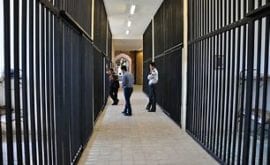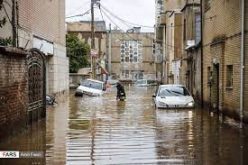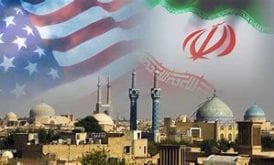iranintl – The Iranian government’s ongoing crackdown against non-governmental charitable organizations has struck another blow, resulting in the closure of the Mehre Shams Afarid NGO safe house.
The NGO, vital for supporting and empowering vulnerable women, which strives to mitigate social and familial challenges faced by women and children in Iran’s West Azarbaijan Province in Urmia, has become the latest victim of the government’s clampdown.
This closure, reminiscent of previous shutdowns of NGOs in Iran, such as Imam Ali’s Popular Student Relief Society (IAPSRS), Khaneh Khorshid, and Omid-e-Mehr Foundation reflects a disconcerting trend of governmental interference in independent charitable initiatives.
Fatemeh Babakhani, the CEO of the NGO, announced the closure on Sunday, April 28, via X platform, lamenting, “The shelter dearer than our lives, Mehre Shams Afarid non-governmental safe house, was closed in the worst possible way!”.
In an earlier interview with Shargh newspaper in Tehran on Saturday, Babakhani warned of the State Welfare Organization of Iran (SWO) of West Azarbaijan Province’s attempts to close Mehre Shams Afarid. The closure comes following a tense meeting on Saturday, which Babakhani described as “resembling an interrogation,” during which SWO officers scrutinized the organization’s financial sources. Simultaneously, SWO’s Social Emergency Services intervened at the NGO’s safe house, relocating all the women to Social Emergency facilities, likened to “a cage” without issuing any formal verdict or written order, she added.
While the SWO officers cited financial inadequacy as the reason for closure, Babakhani refuted these claims, asserting that it was part of a broader pattern of pressure against the organization. “These words are excuses. The general director of the SWO of the province [West Azarbaijan] had threatened to close down the NGO and the safe house,” Babakhani refuted.
In addition, she disclosed that the director-general had exerted pressure on her, explicitly stating, “You don’t have good hijab, you are a dissident, and you have acted against Sharia customs and against the regime on social media. One of the issues raised was why you used the hashtag ‘Woman, Life, Freedom’ on your Instagram.”
The closure of Mehre Shams Afarid is not an isolated incident.
In 2020, Iranian security forces arrested Sharmin Meymandinejad, the founder and director of the largest anti-poverty NGO in the country, Imam Ali’s Popular Student Relief Society (IAPSRS), and subsequently closed down its headquarters.
Meymandinejad and two of his colleagues, Morteza Kaymanesh and Katayoun Afrazeh were arrested by the Islamic Revolutionary Guard Corps (IRGC) Intelligence Organization on 21 June 2020 on charges of “insulting” the founder of the Islamic Republic, Ruhollah Khomeini, and the Supreme Leader, Ali Khamenei, as well as “acting against national security.”
Subsequently, Branch 28 of the Tehran Appeals Court has upheld the ruling to dissolve the IAPSRS, a motion that was brought against them by Iran’s Ministry of Interior. The Ministry of Interior had accused the NGO of “issuing political statements during the country’s critical situation and vilification, anti-religious activities and lack of financial transparency”.
The closure of IAPSRS was met with much criticism from Iranians and human rights organizations who condemned the ruling.
A year after the closure of IAPSRS, the Khaneh Khorshid, an NGO supporting women in Southern Tehran, Iran with substance abuse issues was closed in March 2022 following pressures from the Iranian authorities.
Leili Arshad and Sarvar Monshizadeh, the founders of Khaneh Khorshid announced that they were facing pressures from the Iranian government and were subsequently forced to stop their activities. In an interview with Hamshahri, Arshad said:
“They don’t want NGOs to be as active as they were before.”
Similarly, in August 2019, another independent charity supporting marginalized women and girls in Tehran, Omid-e-Mehr was forcibly closed by the Iranian authorities.
Moreoever, in August 2022, another NGO supporting women with substance abuse issues and vulnerable children in Shoush, a neighborhood in southern Tehran, The Noor Sepid Hedayat, Social Harm Reduction Institute announced its closure. Without providing details, the director of Noor Sepid, Sepideh Alizadeh announced in an Instagram post, that “the operation of this center was handed over” and that the service “will be provided by another operator,”.
Amidst the Iranian government’s ongoing crackdown on non-governmental organizations, the closure of these entities highlights the diminishing room for independent civil society initiatives in Iran. This trend ultimately leaves the most marginalized members of society, especially women, without the essential support they require.
 Shabtabnews In this dark night, I have lost my way – Arise from a corner, oh you the star of guidance.
Shabtabnews In this dark night, I have lost my way – Arise from a corner, oh you the star of guidance.



